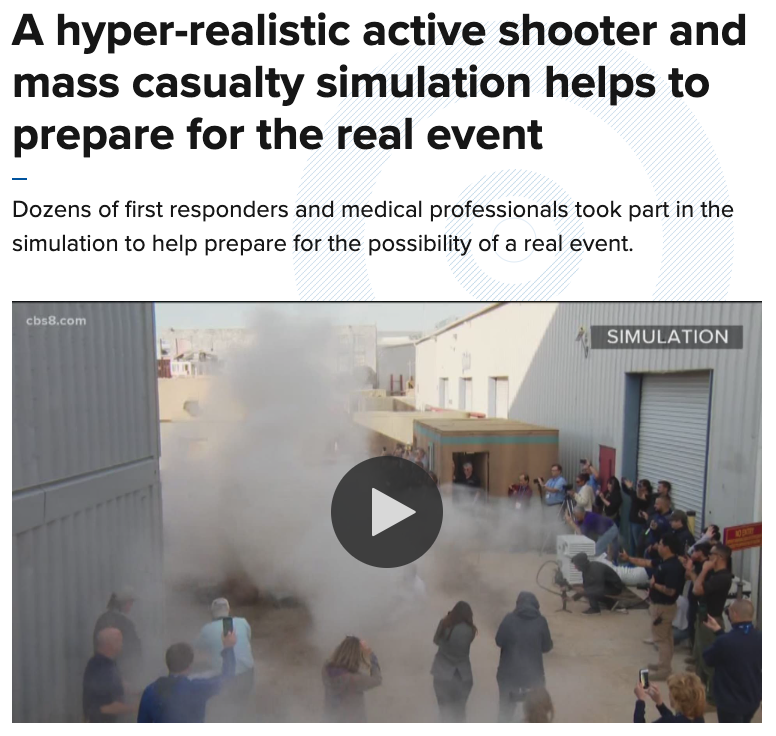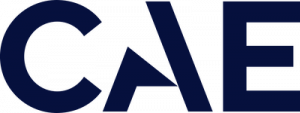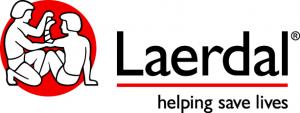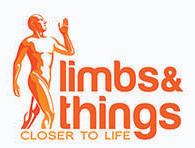Saturday, January 20, 2024
8 a.m. - 12 p.m.
Accreditation Readiness
Course Description: Applying for accreditation may seem an overwhelming process. This workshop will walk attendees through the SSH Accreditation process as well as each standard. Attendees will gain thorough understanding as to what is required to develop a successful submission. The goal is for attendees to leave with a complete overview and assessment of how their Program may meet standard and formulate a plan to move forward with submitting the application.
Objective 1: Summarize the key concepts and content of the six areas of accreditation: Core, Assessment, Research, Teaching, Systems Integration and Fellowship.
Objective 2: Describe the intent and key features of criterion articulated within each Standard.
Objective 3: Identify strategies and tools that can support the development of the self-study within the context of your Program.
Faculty: Mary Kay Smith
Disclose Adverse Events and Root Cause Analysis: Simulation to Satisfy New ACGME
OFFSITE: Sharp Healthcare in San Diego, CA
Transportation provided - Buses will depart from the San Diego Convention Center. You will receive an Immersive Confirmation email with details of your bus departure time prior to your arrival at IMSH 2024.
Course Description: This course will highlight how our facility used actor-based simulation to provide training in disclosing adverse events and root cause analysis to meet the ACGME common program requirements. It will include a discussion of creation of the training(s), and an opportunity for learners to develop schedules and cases specific to their needs and to participate in simulations. Learners will gain insight on how to implement a program in their facility.
Objective 1: Design a schedule for providing this type of training specific to their training program(s) using examples provided.
Objective 2: Design one case for disclosing medical error and one case for root cause analysis specific to their training program(s) using examples provided.
Objective 3: Apply learned content in simulated scenarios for each subject.
Faculty: Carmen Spalding, PhD, RN, CHSE; Michael Froeberg; Melodie Daniels, PhD, APRN, NPD-PC; Andrea Austin, M.D.; Daniel McConnell; Sherri Rudinsky
HELP! I Need Somebody! Meaningful Metrics for Growing Your Program
Course Description: Simulation leaders must articulate the need for additional staffing. “Learner Hours” does not capture the range of work that is necessary for any given course. Program leaders also have an obligation to justify resource utilization to administrators. Participants will be introduced to the staffing capacity analysis tool and have the opportunity to customize it using their staffing in order to quantify program capacity more effectively.
Objective 1: Identify metrics relevant to measuring staffing needs of a simulation program.
Objective 2: Explain the process for measuring staffing capacity in use at various simulation programs.
Objective 3: Explain the process for measuring staffing capacity in use at various simulation programs.
Faculty: Robert Schremmer, MD
SSH Presents: Master’s Classes with the SSH Fellows: Administrator
Course Description: This multi-part class is designed to collect current problems from the administrator attending this session. The Fellows of the SSH Academy (FSSH) will engage with the attendees to investigate the problems, and then guide the attendees to create solutions while growing their professional practice and expertise.
Objective 1: Examine administrator-specific issues (as identified by the attendees).
Objective 2: Analyze the underlying core and critical concepts that are part of the identified issues.
Objective 3: Create a plan of action to implement for purposes of addressing/solving the identified issues.
Faculty: Joseph Lopreiato, MD, MPH; Jeffery Groom, PhD, CRNA
SSH Presents: Master’s Classes with the SSH Fellows: Educator
Course Description: This multi-part class is designed to collect current problems from the educator attending this session. The Fellows of the SSH Academy (FSSH) will engage with the attendees to investigate the problems, and then guide the attendees to create solutions while growing their professional practice and expertise.
Objective 1: Examine administrator-specific issues (as identified by the attendees).
Objective 2: Analyze the underlying core and critical concepts that are part of the identified issues.
Objective 3: Create a plan of action to implement for purposes of addressing/solving the identified issues.
Faculty: Tonya Schneidereith, PhD, CRNP; Jared Kutzin, DNP, MA, MPH, RN, FSSH, FAAN
SSH Presents: Master’s Classes with the SSH Fellows: Operations Specialists
Course Description: This multi-part class is designed to collect current problems from the operation specialists attending this session. The Fellows of the SSH Academy (FSSH) will engage with the attendees to investigate the problems, and then guide the attendees to create solutions while growing their professional practice and expertise.
Objective 1: Examine administrator-specific issues (as identified by the attendees).
Objective 2: Analyze the underlying core and critical concepts that are part of the identified issues.
Objective 3: Create a plan of action to implement for purposes of addressing/solving the identified issues.
Faculty: Melissa Lowther, BS, CHSOS; Sean Cavanaugh, MBA, FSSH
Saturday, January 20, 2024
10 a.m. – 3 p.m.

Mass Casualty: A Fully Immersive, Large-scale Simulation Training Event (Operations Specialist Track)
OFFSITE: Strategic Operations in San Diego, CA
Transportation provided - Buses will depart from the San Diego Convention Center. You will receive an Immersive Confirmation email with details of your bus departure time prior to your arrival at IMSH 2024.
Course Description: This course addresses the growing need for simulation/medical training teams to provide simulation training in every environment and multiple levels of care. Attendees will participate in setting up, facilitating, and debriefing a MASCAL event. The participants in this course will learn from Tactical Medicine SMEs, professional moulage artists, project managers, and simulation experts.
Objective 1: Attendees will participate in simulation training event preparation.
Objective 2: Attendees will participate as learners in a mass casualty simulation training event.
Objective 3: Attendees will participate in a learner debriefing geared towards the role of and simulation educator.
Faculty: Steve Markham; Wyatt Sabo
Mass Casualty: A Fully Immersive, Large-scale Simulation Training Event (Simulation Educator Track)
OFFSITE: Strategic Operations in San Diego, CA
Transportation provided – Buses will depart from the San Diego Convention Center. You will receive an Immersive Confirmation email with details of your bus departure time prior to your arrival at IMSH 2024.
Course Description: This course addresses the growing need for simulation/medical training teams to provide simulation training in every environment and multiple levels of care. Attendees will participate in setting up, facilitating, and debriefing a MASCAL event. The participants in this course will learn from Tactical Medicine SMEs, professional moulage artists, project managers, and simulation experts.
Objective 1: Attendees will participate in simulation training event preparation.
Objective 2: Attendees will participate as learners in a mass casualty simulation training event.
Objective 3: Attendees will participate in a learner debriefing geared towards the role of and simulation educator.
Faculty: Steve Markham; Wyatt Sabo
Saturday, January 20, 2024
1-5 p.m.
3D Printing in Healthcare Simulation: From Introduction to Printing
Course Description: This course will start with the basics of 3D Printing. From a basic overview of the different varieties of printers to the key components of all printers. This course will also cover key terms and need-to-know information for anyone interested in 3D printing. Time will be spent covering the backbone of 3D printing, which is CAD or Computer Assisted Design, where we will design something simple and actually print the design out in the course.
Objective 1: Identify the types of printers and the key components of all 3D printers, which will be necessary when shopping for a printer for their own facilities, as well as show reasoning and justification for a simulation program to adopt 3D printing.
Objective 2: Successfully complete a simple design on a CAD platform (TinkerCad).
Objective 3: Prepare, load, initiate, and troubleshoot actual 3D printing on a 3D printer in class.
Faculty: Kirk Atkinson
Expanding Horizons in Rehabilitative Science Education: Immersive Experience using Simulation Operations and Innovative Technology
OFFSITE: University of St. Augustine Health Sciences in San Marcos, CA
Transportation provided - Buses will depart from the San Diego Convention Center. You will receive an Immersive Confirmation email with details of your bus departure time prior to your arrival at IMSH 2024.
Course Description: During this immersive workshop, participants will rotate through multiple simulated learning stations, such as complex hospital rooms, simulated apartments for home health, and driving simulator for an overview of rehabilitation science education integrating simulation operations and innovative technology.
Objective 1: Experience simulation technology used in training OT/PT students across settings, such as home health, driving simulator, and hospital setting.
Objective 2: Describe how rehabilitative science educators utilize simulations, debriefings, and technology for medically complex patients in training of prelicensed occupational therapy and physical therapy students.
Objective 3: Explain how to incorporate the Interprofessional Education Collaborative (IPEC) core competencies and innovative technology into simulation design, facilitation, and assessment.
Faculty: Maureen Johnson, PhD, MS, OT/L, BCPR, C/NFT, CHSE-A
Going Ballistic: Create Your Own Vascular Access Ultrasound Phantom Using Ballistic Gel and 3D-Printed Molds
OFFSITE: University of California San Diego in San Diego, CA
Transportation provided - Buses will depart from the San Diego Convention Center. You will receive an Immersive Confirmation email with details of your bus departure time prior to your arrival at IMSH 2024.
Course Description: Custom-made ballistic gel models (phantoms) serve as an inexpensive, durable, and versatile tool on which medical trainees can practice ultrasound-guided procedures. In this course, you will create your own vascular access ultrasound trainer to take home with you, and in the process, you will learn how to design and 3D print a plastic model, create silicone molds, and pour ballistic gel to create the perfect vascular access trainer.
Objective 1: Design and print a model of a custom vascular access trainer using computer-aided design (CAD) software and a 3D printer.
Objective 2: Create silicone molds and pour ballistic gel into to create a vascular access trainer.
Objective 3: Innovate upon existing model designs by adding tissue color, ultrasound echogenicity, and other components like nerves and bones.
Faculty: John Ryan; Sarah Hood; Preetham Suresh; Brennan Marsh-Armstrong; Benjamin Supat; Ricky Wood
Mastering Scenario Design
Course Description: Developing highly reliable scenarios requires a structured approach and a deep understanding of the critical elements as well as how the relate to one another. This course explores a deep dive into the world of scenario design thorugh a hands on, collaborative approach. Teams will create, present and explore imrpovment opportunities for their final designs.
Objective 1: Define the first four critical steps to scenario design and articulate their interdependancies.
Objective 2: List critical sections of scenario design that follow the first four critical steps to create highly reliable simulation scenarios and demonstrate a logical progression of creation.
Objective 3: Compare and contrast the benefits of a structured scenario design/documentation pathway that allows for the creation of highly reliable scenarios to add value to a simulation program.
Faculty: Paul Phrampus; Ismail Saiboon; John O’Donnell
Reflection on Reflection: Developing Your Feedback, Debriefing, and Mentoring Abilities
Course Description: Jump into a pool of reflection with us! This workshop will teach educators who use experiential learning, including mentoring and simulation, strategies for using reflection to process feedback, debriefing, and difficult conversations. Participants will learn to write process notes and how to create a learning pathways grid, reflective practices that allow iterative cycles of observation, analysis, and insight after an encounter has occurred.
Objective 1: Appraise the usefulness of reflective practice as a tool to enhance and promote their professional development in the areas of feedback, debriefing, mentoring, and difficult conversations.
Objective 2: Examine critically how the process notes and learning pathways grid they will create in the workshop can be used to deepen reflective practice and improve their capacities and effectiveness as healthcare educators.
Objective 3: Compare and contrast the writing of process notes and two-column case/learning pathways grids with other methods of reflective practice, as part of a self-designed program of professional development.
Faculty: Maria Rudolph, MD; Yue-Ming Huang, EdD, MHS; Cathy Smith, MA, PhD; Grace Ng, PhD(c), MS, CNM, RN; Janice Palaganas; Susan Eller; Jenny Rudolph, PhD









